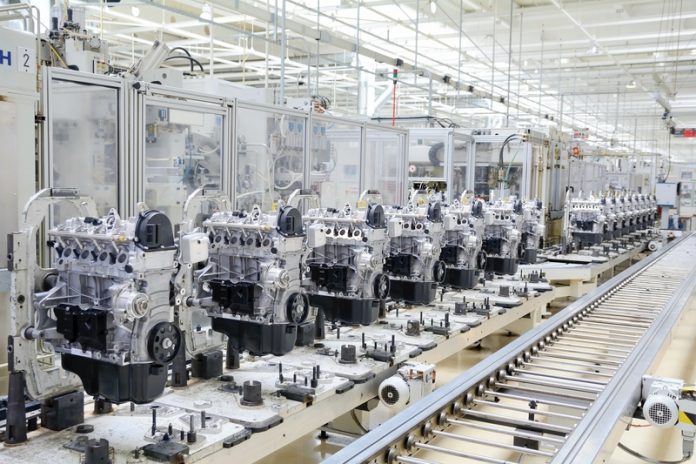Simon Edmonds, Deputy Executive Chair and Chief Business Officer, Innovate UK writes about the strength of innovation in the UK when it comes to the manufacturing sector
Working at Innovate UK provides a unique insight into the strength of innovation in the UK and the appetite of our businesses, large and small, to develop new products and services. Since our organisation’s inception in 2007, we have supported innovation across 8,500 organisations, which has created 80,000 jobs – nine for each company we’ve worked with. Three-quarters of the companies we work with are small businesses, across all sectors of the UK economy.
As part of UK Research and Innovation, Innovate UK is a key delivery partner for the government’s modern industrial strategy, which identifies the four Grand Challenges to put the United Kingdom at the forefront of the industries of the future. These are artificial intelligence (AI) and data, ageing society, clean growth and the future of mobility. This is creating new opportunities for businesses and sectors across the UK and are areas the government feels that the UK can punch above its weight.
Our support is available to businesses across all economic sectors, value chains and UK regions. With a strong business focus, we drive growth by working with companies to de-risk, enable and support innovation.
Looking in particular at our support for manufacturing and materials companies, our aim is to enable these businesses develop transformative capabilities that are flexible and resource-efficient, ensuring leading-edge products are manufacturing-ready and that the value of UK manufacturing and materials innovation benefits the UK economy.
There are some key ways we are working with businesses to achieve this goal, which are detailed below.
The Faraday Battery Challenge is a really good example. It is breaking new ground because it offers for the first time a coordinated programme of competitions across research, innovation and scale-up funded with a £246 million investment through the government’s Industrial Strategy Challenge Fund. It will, therefore, draw the very best of the UK’s world-leading research into commercial technologies and put UK businesses at the forefront of electric vehicle battery development.
Also, relevant here is the work of the High Value Manufacturing Catapult which through its world-beating seven technology and innovation centres across the UK brings expertise and equipment for use by business and to help bridge the gap between academia and business.
Throughout 2017/18, we have invested up to £151 million in our sector-based and open programme competitions for businesses. This latest competition is one of our broad competitions aimed at encouraging collaborative business-led innovation in our key sector through grant funding. All successful proposals must demonstrate that they will improve business growth and productivity or create export opportunities for at least one UK SME involved in the project.
For over a decade, our funding has been helping UK manufacturers to grow and innovate. Take, for example, high-tech engineering company Lontra who is building a new manufacturing facility in Warwickshire for its innovative industrial compressors and to create new jobs.
The business developed its Blade Compressor® – a revolutionary new design for an air compressor – with the support of Innovate UK. Our support for the development of the Blade Compressor came through a number of projects. This included initial feasibility studies, development of a prototype, and investigating its use in industrial areas, including power generation and food processing.
Manufacturing businesses across the country have a long association with the Knowledge Transfer Partnership scheme, which supports UK businesses to innovate and grow.
KTPs enable businesses to bring in new skills, and the latest academic thinking, to deliver an innovation project of commercial benefit in a three-way knowledge-based partnership between them, an academic or research organisation, and a suitably-qualified graduate.
An excellent example is the work of specialist machinery manufacturer Cygnet Texkimp and the University of Manchester who have created a cutting-edge machine to support the next generation of fuel-efficient cars and aeroplanes.
The 3D Winder is the world’s first robotic winding machine capable of laying carbon fibre to make complex, lightweight composite parts for industry.
Through the Knowledge Transfer Partnership, the Northwich-based company brought in PhD graduate and composites academic, Dr Yan Liu, to develop this technology to work with more complex and curved shapes. Following the success of the partnership, Yan was offered a permanent role at Cygnet Texkimp’s R&D centre.
An important area of Innovate UK’s work with businesses across the UK is helping them reach out internationally to partners and opportunities. We do this for example through our missions, helping companies find prospective partners and markets abroad.
It is, therefore, very encouraging to report successes from previous missions we’ve run, such as the excellent news that advanced materials business Versarien has signed a major deal with a South Korean partner after being part of an Innovate UK mission to the country.
The Cheltenham-based specialist in 2-dimensional materials has entered into a collaboration agreement with AXIA Materials Co. The relationship was formed during an Innovate UK global business innovation programme visit to South Korea.
I would urge companies wishing to innovate to visit our website to see how Innovate UK is there to help and support them innovate and grow their business.
Simon Edmonds
Deputy Executive Chair and Chief Business Officer
Innovate UK
Tel: +44 (0)300 321 4357











